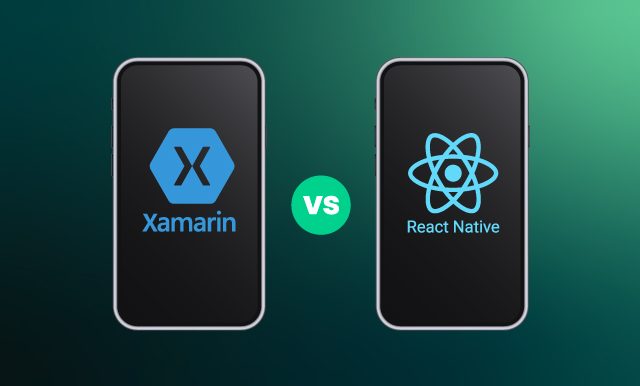Selecting the best language for an app development project is a critical business decision that requires in-depth technical considerations and expertise. The programming language you choose can significantly impact your project’s success, costs, development speed, and long-term maintainability.
Statistically speaking, here are the top ten best app development languages as of 2025:

Some of these languages are primarily used in commercial website development, while others are employed in custom mobile application development. Still, some can be utilized for various domains, such as .NET, which is suitable for building software products across different platforms. So what’s the best language for app development?
At Forbytes, we are frequently asked about the best language for mobile app development. Popular programming languages are commonly used in various situations, but the secret to a successful and reliable solution lies in a well-engineered combination of common technologies.
This article serves as a comprehensive guide to help you make an informed choice, considering various factors and the strengths and weaknesses of popular programming languages commonly used in software development. However, if you have a software idea but are unsure about the best language for app development, you can contact us for individualized IT consulting.
Programming Language Selection: Why It’s a Big Deal
Choosing between the best languages for app development is akin to laying the foundation of a building. The choice you make can either set you on a path to success or lead to unnecessary challenges. Before delving into the specifics, let’s understand why this decision is crucial.
Why language selection matters
- Efficiency. The right language can streamline development, reducing time and effort.
- Compatibility. Some languages are better suited for specific platforms.
- Scalability. Long-term success often hinges on the language’s scalability.
- Developer expertise. Your team’s familiarity with a language is essential.
- Community support. Widespread use fosters a robust developer community.
Three major factors to consider
When selecting the best language for app development, consider the following factors:
1. Project requirements
- Functionality. What features and capabilities do you need?
- Performance. Are speed and efficiency crucial for your app?
- Platform. Is your app intended for a specific operating system or multiple platforms?
- Integration. Does your app need to connect with other systems or APIs?
2. Developer expertise
- Team skills. What languages are your developers proficient in? (or what dedicated app programming teams are available for hire?)
- Learning curve. Are you willing to invest time in learning a new language if it opens up a world of tech opportunities?
- Hiring availability. Is there a pool of experienced developers for the chosen language?
3. Platform selection
Decide between cross-platform development, which offers code reuse across multiple platforms, or native development, which provides optimized performance. That may become your primary filter, limiting you to building your application using a native app development language. However, certain combinations of backend operations, such as PHP development, may still be required.
Choosing the Best App Language: Pros and Cons Explained
Before diving into language-specific details, let’s get an overview of some commonly used programming languages in app development:
- JavaScript. The most popular language for web and mobile apps, often used for hybrid apps. JavaScript continues to dominate, especially with frameworks like React Native powering large-scale fintech and e-commerce apps, combining speed and security.
- Java. The dominant language for Android apps, known for stability and performance.
- Swift. The primary language for iOS app development. Swift’s open-source nature and Apple’s investment ensure it remains the best choice for iOS, with growing developer tools and community.
- Python. Known for its versatility and ease of use. Python is increasingly favored for AI and machine learning integration within apps, thanks to its vast libraries and ease of use.
- Kotlin. Gaining popularity as an alternative to Java for Android. Kotlin has become the preferred Android language, simplifying code and improving app performance, backed strongly by Google.
- PHP. Renowned for web application development and server-side scripting.
- Ruby. Esteemed for its elegant syntax and web application development. Languages like PHP and Ruby maintain strongholds in web apps but play smaller roles in mobile development compared to newer languages.
JavaScript
JavaScript, a front-end web development linchpin, is often regarded as the best app development language. It breathes dynamism into e-commerce and fintech web apps, enhancing user experiences and aesthetics. Its robust security features combat fraud and fortify code.
When paired with ReactJS, it fosters large-scale e-commerce, banking, and fintech app development, ensuring both security and speed. This places your high-capacity app at the forefront of digital excellence, while NodeJS adeptly handles backend operations.
Pros:
-
Ubiquitous in web and mobile development.
-
Huge library and framework ecosystem (React, Node.js).
-
Great for cross-platform and hybrid apps.
Cons:
-
Performance can lag behind native languages.
-
Fragmentation from many libraries can cause compatibility issues.
Python
Python, a versatile app development language, powers renowned platforms like Reddit and Uber. Its cross-platform capabilities ensure smooth operation across various systems and devices. Python’s support for multi-threading enhances concurrent request management and overall performance. Its clean and user-friendly syntax is beginner-friendly, making it an excellent choice for newcomers to programming. The robust community support provides a wealth of resources for addressing inquiries during the app development process.
Pros:
-
Very readable and beginner-friendly.
-
Wide use beyond apps: data science, automation, AI.
-
Large library support and cross-platform capability.
Cons:
-
Slower performance compared to compiled languages.
-
Global Interpreter Lock (GIL) limits multi-threading.
Java
Despite its reputation as one of the best mobile app development languages, Java extends its influence beyond the mobile banking app development and dynamic fintech industry. Its lightweight and flexible nature makes it an ideal choice for web applications in various domains. With a history spanning over a quarter of a century, Java serves as a foundational technology in numerous sectors, leveraging its robust security features and efficient handling of extensive datasets. Java’s ‘write once, run anywhere’ architecture is a pivotal factor in its enduring success, enabling seamless operation across diverse platforms. In industries marked by diverse hardware and operating systems, this portability is of paramount significance.
Pros:
-
Leading Android development language.
-
Mature ecosystem with strong security features.
-
“Write once, run anywhere” portability.
Cons:
-
Steeper learning curve.
-
More verbose—requires more code than newer languages.
PHP
PHP is a versatile scripting language widely employed in web development, known for its ability to create dynamic and interactive web pages. It boasts an extensive range of frameworks and libraries, empowering developers to build a diverse array of web applications. PHP enables the creation of secure and feature-rich web applications for the financial technology sector. Its user-friendly nature and compatibility with various databases make it a preferred choice among web developers worldwide.
Pros:
-
Excellent for web and server-side development.
-
Supports a wide range of web applications and databases.
-
Large ecosystem with many frameworks (Laravel, Symfony).
Cons:
-
Not suitable for non-web or high-performance apps.
-
Can be slower than specialized languages.
Swift
Swift, conceived within the Apple ecosystem, is a multi-paradigm, compiled programming language celebrated for its ease of learning and usage, as well as its robust security. It’s considered the best app development language that thrives in the iOS realm, delivering exceptional performance and a thriving developer community, ensuring a bright future for app development on Apple platforms. Its open-source nature fosters innovation and collaboration among developers, further enhancing its capabilities.
Pros:
-
Native language for iOS, offering top performance.
-
Safe, reducing runtime errors with strong typing.
-
Open-source, with growing community support.
Cons:
-
Limited to Apple platforms.
-
Smaller ecosystem compared to JavaScript or Java.
Kotlin
Kotlin is among the mobile development languages for Android app development. It offers a rich array of technical capabilities. With a substantial talent pool, it provides ample opportunities for knowledge expansion. Its seamless integration with Java enhances the efficiency of Android application code development, enabling easy interoperability between the two languages. The inclusion of a lazy loading feature optimizes performance by selectively loading necessary UI components. Moreover, Kotlin’s use of data classes simplifies coding, reducing verbosity while retaining functionality.
Pros:
-
Fully interoperable with Java.
-
More concise, easier to write than Java.
-
Officially supported by Google for Android.
Cons:
-
Primarily Android-focused.
-
Smaller developer community compared to Java.
Ruby
Ruby is an object-oriented, dynamic, and reflective programming language with versatile applications. Developers can leverage RubyMotion, equipped with its unique compiler, to craft native apps for both iOS and Android, ensuring cross-platform compatibility. Furthermore, the Ruby on Rails framework, built on Ruby’s foundation, serves as a popular choice for creating applications compatible with Android and iOS, offering developers an efficient toolset for mobile app development.
Pros:
-
Elegant, readable syntax that speeds development.
-
Ruby on Rails framework simplifies web app building.
-
Tools like RubyMotion enable cross-platform mobile apps.
Cons:
-
Less popular outside web development.
-
Performance can be an issue in large-scale apps.
-
Smaller community than JavaScript or Python.
Need help choosing the best language for your app? Get in touch with us, and we’ll help you find the most suitable option based on your goals and tech needs.
Cross-Platform vs Native App Development: Key Differences
The choice between cross-platform and native development can significantly impact your project. Here are some key considerations:
Cross-platform development
Hybrid apps, as their name suggests, are engineered to function seamlessly on both iOS and Android operating systems, ensuring a glitch-free user experience. The primary languages employed for crafting these apps encompass HTML, JavaScript, ReactJS, Python, and more. Since these apps are developed to be cross-platform, the code must be written on a framework with an engine capable of translating code snippets into native elements tailored to the specific OS.
Native development
A native app is purpose-built for a single platform, like Android or iOS, tapping into the distinctive features and capabilities of that OS. These apps are developed using app development languages that are platform-specific, leveraging the unique coding of the operating system. This approach empowers native apps to unlock the device’s full potential, seamlessly merging high-end, optimized technology with emerging innovations such as cloud-based mobile app development, web app comparisons, and GPS integration. The selection of native app development languages is dictated by the chosen platform.
- Android (Java/Kotlin). Native Android applications predominantly utilize Java and Kotlin. Kotlin, recognized for its brevity and clarity, has seen increasing adoption in recent years.
- iOS (Swift/Objective-C). iOS native apps are frequently crafted with Swift, the contemporary language of choice. However, Objective-C persists in managing legacy applications.
How Frameworks Shape Modern App Development
The choice of framework can significantly enhance development efficiency and align with your selection of the best language for mobile app development based on project requirements. It offers a ready-made foundation to streamline your development process. Here are some notable frameworks associated with the discussed languages:
- React Native. A JavaScript framework for cross-platform mobile app development.
- Angular. A JavaScript framework tailored for web application construction.
- Spring Boot. A Java framework designed for web applications and microservices.
- Express.js. A minimalist web application framework for Node.js (JavaScript).
- .NET and Xamarin. .NET is a versatile framework that supports various programming languages and is highly compatible with C#. Xamarin, a part of the .NET ecosystem, is perfect for developing cross-platform mobile applications.
- Ruby on Rails. A robust Ruby framework for efficient web application development.
- Node.js. Ideal for building scalable network applications and real-time web apps, leveraging JavaScript for both server-side and client-side scripts. You can learn more about this framework from this article about Node.js.
How Programming Languages Are Used Today
JavaScript project examples
- Web development. This app development language powers interactive sites like Google Maps, Facebook, and Netflix. It is also the core of Node.js, used by Mozilla, Netflix, PayPal, LinkedIn, and Uber for various applications.
- Mobile apps. Used in apps like WhatsApp, Instagram, and Airbnb via React Native and Flutter.
Java project examples
- Android apps. Dominates Android app development with Google Maps, YouTube, and Spotify.
- Enterprise software. Key in CRM and ERP systems like Salesforce and SAP.
Swift project examples
- iOS apps. Primary app development language for TikTok, Amazon, and Twitter apps.
- Mac apps. Used in apps like Safari, Pages, and Numbers.
Python project examples
- Machine learning & AI. Employs popular frameworks like TensorFlow and PyTorch.
- Data science. Widely used for data analysis with libraries like NumPy and Pandas.
- Web development. Django and Flask frameworks power sites like Instagram and Pinterest.
Kotlin project examples
- Android apps. Gaining ground with apps like Google Pay, JetBrains, and Slack.
- Server-side development. Used in platforms like Netflix and Airbnb through Spring Boot and Ktor.
Ruby project examples
- Web development. Ruby is pivotal in building websites, including Airbnb and GitHub.
- E-commerce. It fuels platforms like Etsy, a prominent online marketplace.
PHP project examples
- Content management. PHP drives systems like WordPress and Joomla.
- E-commerce solutions. It empowers WooCommerce and other major online shopping platforms.
Wrapping Up: Key Considerations for Selecting Your App’s Language Today
As you finish your mobile app programming language selection, it’s essential to stay updated with current industry trends, such as the growing significance of artificial intelligence (AI) in various sectors. This innovation can provide a substantial advantage when integrated into your application. To guide your decision, consider these key factors:
- Project requirements. Ensure the chosen language aligns with your specific project needs and platform compatibility.
- Developer expertise. Evaluate the availability of developers skilled in the chosen language.
- Cross-platform vs. native. Determine whether cross-platform or native development best suits your project’s objectives.
- Language strengths and weaknesses. Weigh the pros and cons of popular languages to find the best fit for your project.
- Role of frameworks. Explore how frameworks can expedite and simplify your development process.
- Real-world use cases and trends. Stay informed about real-world applications and emerging industry trends to remain competitive.
- Developer community. Consider the support and resources provided by the language’s developer community.
- Compatibility with emerging technologies. Ensure the language can accommodate cutting-edge technologies, such as AI.
- Long-term scalability. Assess whether the language is suitable for your project’s sustained growth.
If you’re ready to explore your best app development language, don’t hesitate to reach out to Forbytes for expert consulting and .NET, NodeJS, and React programming services.

Our Engineers
Can Help
Are you ready to discover all benefits of running a business in the digital era?

Our Engineers
Can Help
Are you ready to discover all benefits of running a business in the digital era?












